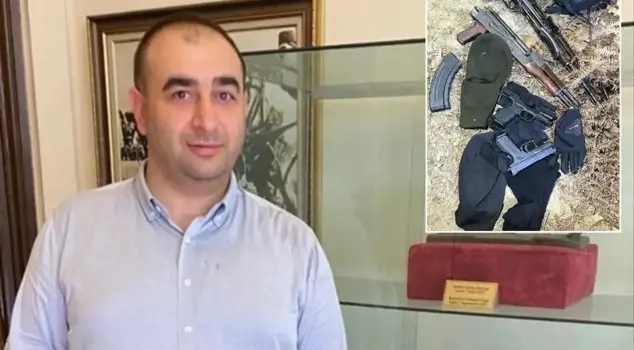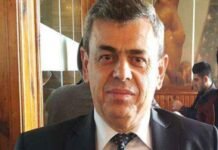A lawyer who was a defendant in the trial over the 2022 killing of former Grey Wolves leader Sinan Ateş was shot dead in İstanbul on Monday, with authorities announcing that they had detained 13 people in connection to the attack.
Police said Serdar Öktem, 49, was ambushed in rush-hour traffic on Büyükdere Avenue in the city’s Şişli district.
Gunmen in a separate vehicle opened fire with automatic weapons and handguns. Öktem was taken to a hospital, where he died of his wounds. Crime-scene teams later recovered two rifles, two pistols, ski masks and gloves near İstanbul’s Arnavutköy district, where suspects fled and were caught, according to the İstanbul Chief Public Prosecutor’s Office.
The office initially announced six detentions, including two suspects under 18, and said the killing appeared to stem from the grudge of an organized crime group. Local outlets later reported that the total detentions had risen to 13.
A preliminary autopsy by Turkey’s Council of Forensic Medicine found gunshot wounds to Öktem’s head, face and left arm. The report cited skull and facial fractures, brain hemorrhage, tissue destruction and major vessel injury as causes of death.
Öktem was a defense attorney and nationalist politician who previously served as a deputy leader of the Grey Wolves, a youth organization aligned with Turkey’s far-right Nationalist Movement Party (MHP). He practiced criminal and corporate law and ran for parliament with the MHP in 2023.
He became a central figure in the case over the December 30, 2022 assassination of Ateş, a former Grey Wolves chief who was shot dead in Ankara.
The trial, which opened in July 2024, charged 22 defendants.
In October 2024 the court issued aggravated life sentences for five men including the gunman, while separating files for Öktem and a police officer for further investigation.

Ateş’s widow and opposition politicians have long argued that the indictment shielded higher-ranking MHP figures and ignored political motives.
Prosecutors have portrayed Öktem as a coordinator who helped link the İstanbul-based team that transported the shooter with Ankara-area accomplices, citing call records and movements that placed him on the route used by the gunman’s handlers. Öktem denied wrongdoing, invoked attorney-client privilege and refused to unlock his phone, arguing that the state sought to criminalize the defense.
According to the authorities, initial evidence points to an organized crime feud behind the killing of Öktem.
İstanbul prosecutors opened an inquiry to identify possible instigators and determine whether a mob group acted as a contractor.
In August İstanbul police circulated a written notice to district stations warning that members of the Daltonlar (Daltons) gang were planning an attack on Öktem and urged protective measures. After the killing, social media accounts tied to the Daltonlar claimed the hit as revenge for the August murder in Spain of their senior member Caner Koçer. Authorities have not confirmed that claim and said the probe is continuing.
Why the death matters for the Ateş case
Öktem’s killing removes a defendant seen by both prosecutors and critics as a central link in the Ateş file. His case had been separated in 2024 while authorities tried to unlock his phone, which he argued was protected by attorney-client privilege. Ateş’s family says that by failing to protect defendants and witnesses, the courts are helping obscure who ordered the murder.
The Grey Wolves, founded in the late 1960s as a nationalist youth movement, are closely tied to the MHP, the main ally of President Recep Tayyip Erdoğan’s ruling Justice and Development Party (AKP). Ateş’s assassination unsettled Turkish politics because he had once led the Grey Wolves but later broke with some of its senior figures.
The trial has been closely watched by opposition parties and bar associations, who argue it lays bare deep flaws in Turkey’s justice system. They say investigators have shielded high-ranking MHP officials, ignored organized crime links and turned the case into a political bargaining chip in Erdoğan’s alliance with MHP leader Devlet Bahçeli.















